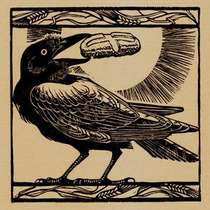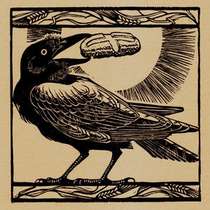 PHOTO:Mary van Balen “There was the work hard, play hard Eden of childhood truths and treats. Run out in the rain, my Czech grandmother would say urgently, run quick! I flew out the back door, naked, screeching with demented joy, to stand under the drainpipe, rainwater sluicing down my tadpole body.”
PHOTO:Mary van Balen “There was the work hard, play hard Eden of childhood truths and treats. Run out in the rain, my Czech grandmother would say urgently, run quick! I flew out the back door, naked, screeching with demented joy, to stand under the drainpipe, rainwater sluicing down my tadpole body.”
…………………………….from “The Florist’s Daughter: A Memoir” by Patricia Hampl
Sometimes, in the midst of news of wars, poverty, illness, and hateful rhetoric, something comes along that reminds us of the human capacity for joy, sheer joy. Often simple, it arrives unheralded, breaking into the quotidian of life or the darkness of suffering or despair.
On Saturday I attended a pool party given by a counselor friend who includes a large number of transsexuals in her practice. I had never ventured into the pool at these annual gatherings, but did last week. My swim suit fit a bit tighter that I remembered, but, oh well. Pride aside, I caught my breath as I waded deeper into the water. Laughter filled the evening as people executed dives, some better than others, tried silly stunts, and slipped under the water as they tried in vain to keep a ball in the air. Nothing amazing. Just fun. Fun, food, and conversation shared by those touched by challenges of transsexuality. I stayed late, but was not the last to leave by far. Who wants to let go of such moments?
No. We open wide and suck them in, gulping down the sweet delight.
Sometimes joy comes with a joke, or a dry one-liner during a game of euchre. My dad was good at that. At work, I hear a baby cry as its parents or grandparents try do to a little shopping. But once in a while, a baby or child gets the giggles and her laughter floats through the store. It is contagious. Soon everyone is smiling, not knowing what is funny but enjoying the moment anyway. One of my coworkers has the greatest laugh. I might be hauling a load of bras and dresses out of a fitting room or trying to make a dent in the rails of undergarments waiting to be hung correctly and returned to the rack.
Then, Seretha’s laugh would fly over the Muzak and noise of business and make my day. I pictured her face, her broad smile, and was glad I belonged to the “sisterhood” as she called us.
Sometimes music is the source of exhilaration, like the Trans Siberian Orchestra concert I attended last year. I bought a couple of their CDs and played and replayed my favorites for weeks. Or, the first time I heard Luciano Pavarotti singNessum Dorma or the part ofRodolfo in Puccini’s La Boheme. I have no words.
Yesterday, a friend sent me a musical video that made me laugh and click the replay icon again and again. Watching talented musicians having so much fun tickled hope in me.
Have fun!
 PHOTO: Mary van Balen – In scholars study lounge, Collegeville Institute “I have a prayer request for you,” my sister said. “A young man, twenty-six, discovered that he has stage four lung cancer.” Never a smoker. The prognosis is unknown, but it does not appear likely that he has long to live.
PHOTO: Mary van Balen – In scholars study lounge, Collegeville Institute “I have a prayer request for you,” my sister said. “A young man, twenty-six, discovered that he has stage four lung cancer.” Never a smoker. The prognosis is unknown, but it does not appear likely that he has long to live. PHOTO: Mary van Balen “You’re a natural contemplative,” a priest/friend once told me in high school. A few months before, I wouldn’t have known what he meant. Raised Catholic and having attending Catholic schools from the start, one might have imagined I would have already learned about the rich tradition of contemplative prayer in the the Church. No. Perhaps at that time, such knowledge was deemed unsuitable for the person in the pew. Or perhaps the diocesan clergy were not practicing contemplatives themselves: You can’t give what you don’t have.
PHOTO: Mary van Balen “You’re a natural contemplative,” a priest/friend once told me in high school. A few months before, I wouldn’t have known what he meant. Raised Catholic and having attending Catholic schools from the start, one might have imagined I would have already learned about the rich tradition of contemplative prayer in the the Church. No. Perhaps at that time, such knowledge was deemed unsuitable for the person in the pew. Or perhaps the diocesan clergy were not practicing contemplatives themselves: You can’t give what you don’t have. PHOTO: Mary van Balen Instructions for living a life:
PHOTO: Mary van Balen Instructions for living a life: This print hangs at the Sacred Heart Chapel at Saint Benedict’s Monastery, St. Joseph, MN (Originally published in the Catholic Times, July 12, 2012 © 2012 Mary van Balen)
This print hangs at the Sacred Heart Chapel at Saint Benedict’s Monastery, St. Joseph, MN (Originally published in the Catholic Times, July 12, 2012 © 2012 Mary van Balen)

 “Saint Benedict” by Br. David Paul Lange OSB – Photo: Mary van Balen Readers of this blog know I have found grace and renewal at Saint John’s Abbey in Collegeville, MN, Saint Benedict’s Monastery in St. Joseph, MN, and the Collegeville Institute for Ecumenical & Cultural Research. The three are closely related not only geographically but most importantly by their roots in Benedictine spirituality, and in the case ofthe monastery and abbey, the Rule of St. Benedict.
“Saint Benedict” by Br. David Paul Lange OSB – Photo: Mary van Balen Readers of this blog know I have found grace and renewal at Saint John’s Abbey in Collegeville, MN, Saint Benedict’s Monastery in St. Joseph, MN, and the Collegeville Institute for Ecumenical & Cultural Research. The three are closely related not only geographically but most importantly by their roots in Benedictine spirituality, and in the case ofthe monastery and abbey, the Rule of St. Benedict. God is Present as always. We may not need rescued from a poisoned loaf, but we can all use support and nurture as we make our way through life. As Thomas Worcester reminds us, we are expected to offer the same support to others.
God is Present as always. We may not need rescued from a poisoned loaf, but we can all use support and nurture as we make our way through life. As Thomas Worcester reminds us, we are expected to offer the same support to others.
 Zingerman’s Bakery OK. I live in Columbus, Ohio not far from The Ohio State University. A Buckeye alumna, I may be expected by some to be less effusive about that “place up North,” but I must confess, I love Ann Arbor. I spent a couple of days there recently and enjoyed everything from the weather (7 to 10 degrees cooler than home) to the interesting shops and the plethora of ethnic eating places. Of course, the biggest draw is family, especially my daughter. Spending time exploring Ann Arbor is always most enjoyable with her.
Zingerman’s Bakery OK. I live in Columbus, Ohio not far from The Ohio State University. A Buckeye alumna, I may be expected by some to be less effusive about that “place up North,” but I must confess, I love Ann Arbor. I spent a couple of days there recently and enjoyed everything from the weather (7 to 10 degrees cooler than home) to the interesting shops and the plethora of ethnic eating places. Of course, the biggest draw is family, especially my daughter. Spending time exploring Ann Arbor is always most enjoyable with her. The next day, we added a stop at Panera’s, curry dinner prepared by my sister, and finally before I left, an amazing lunch at foodies world famous Zingerman’s Delicatessen. I added an after lunch splurge of dark chocolate covered marzipan and a turtle on my way to the freeway.
The next day, we added a stop at Panera’s, curry dinner prepared by my sister, and finally before I left, an amazing lunch at foodies world famous Zingerman’s Delicatessen. I added an after lunch splurge of dark chocolate covered marzipan and a turtle on my way to the freeway. What a glorious conglomeration. “An embarrassment of riches,” I said to my daughter, still playing with terms of venery started on the evening of
What a glorious conglomeration. “An embarrassment of riches,” I said to my daughter, still playing with terms of venery started on the evening of  PHOTO: Mary van Balen With all its faults, I am still grateful that I live in this country, my daughter said as we shared breakfast. I mean, when I wake up I might wonder how hot it is, or what I should wear when I go outside. I dont wonder if, once I venture outside my house, if I will return safely. Or return at all. Literally.
PHOTO: Mary van Balen With all its faults, I am still grateful that I live in this country, my daughter said as we shared breakfast. I mean, when I wake up I might wonder how hot it is, or what I should wear when I go outside. I dont wonder if, once I venture outside my house, if I will return safely. Or return at all. Literally. PHOTO: Lisa Durkee According to James Liptons book
PHOTO: Lisa Durkee According to James Liptons book